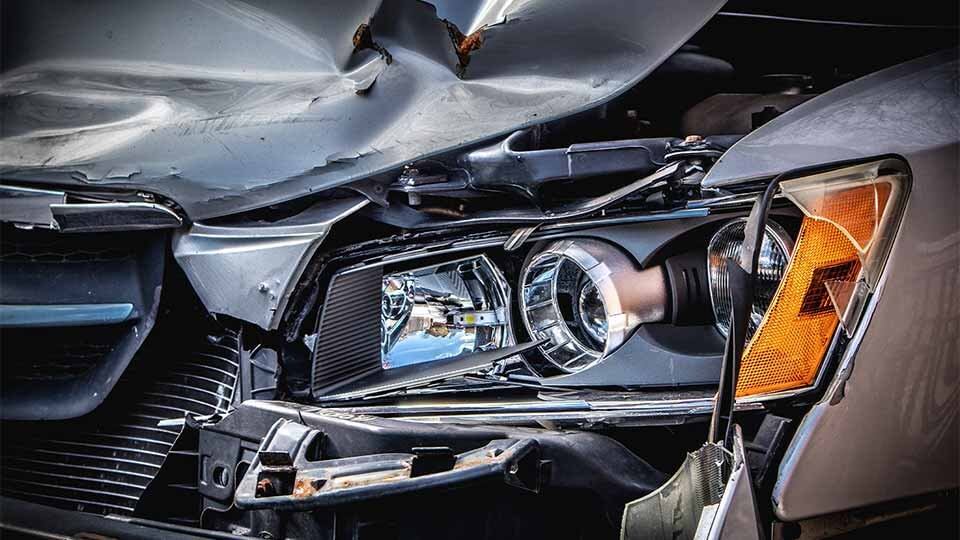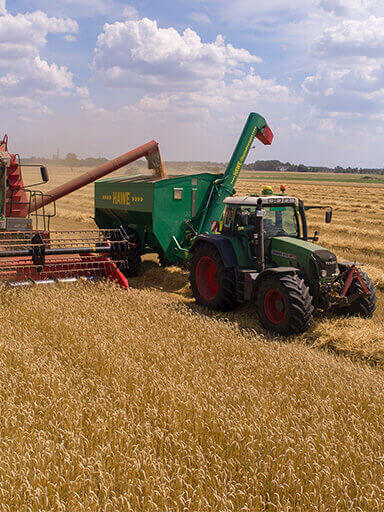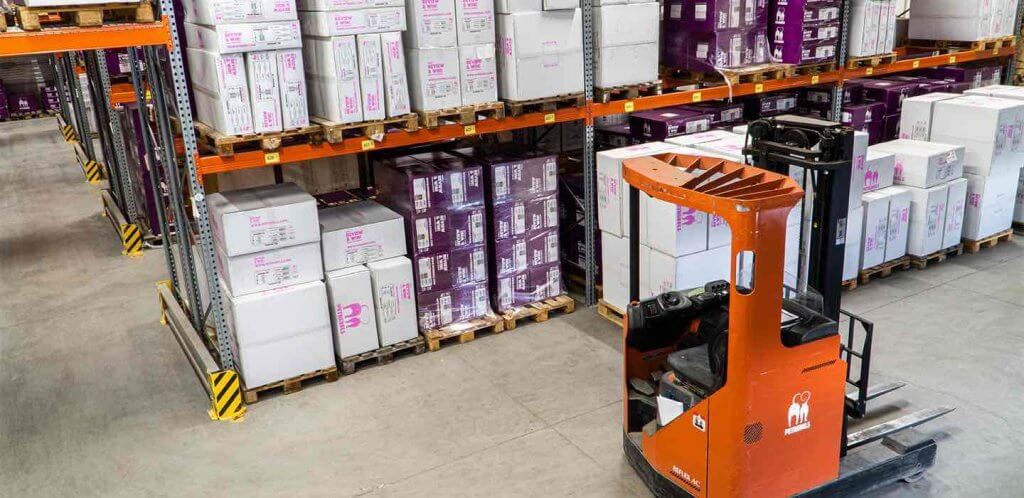Forklift truck accidents can have devastating consequences, both in terms of physical injuries and financial losses. If you’ve been involved in a forklift accident and believe it was due to someone else’s negligence, you may be entitled to compensation. In this article, we will explore the impact of forklift accidents and provide valuable insights on how to make a successful fork lift truck accident claim.
Forklift accidents can occur in various settings, such as warehouses, construction sites, and manufacturing facilities. The injuries resulting from these accidents can range from minor bruises to life-altering disabilities. Moreover, the financial burdens that follow, including medical bills, lost wages, and rehabilitation costs, can be overwhelming.
To make a successful claim, it is essential to gather evidence, establish liability, and navigate the complex legal processes. Hiring an experienced personal injury attorney who specializes in forklift accidents can significantly increase your chances of a favorable outcome.
In this article, we will discuss the steps involved in making a successful claim, the importance of documentation, and how to negotiate a fair settlement. By understanding your rights and taking decisive action, you can protect your interests and seek the compensation you deserve.
Remember, time is of the essence when it comes to making a personal injury claim. Don’t delay in seeking legal advice if you’ve been involved in a forklift accident.
The importance of forklift safety
Forklifts play a crucial role in various industries, but their operation comes with inherent risks. It is essential for employers and forklift operators to prioritize safety measures to prevent accidents. Forklift safety training, routine maintenance, and adherence to safety protocols can significantly reduce the likelihood of accidents.
However, despite the best precautions, accidents can still occur due to various factors. Understanding the common causes of forklift accidents is crucial in improving safety practices.
Common causes of forklift accidents
According to the British Safety Council 1,300 UK employers are in hospital annually following forklift truck accidents. Forklift accidents can happen due to a combination of factors, including:
1. Operator Error: Inadequate training, distracted driving, or reckless behavior by forklift operators can lead to accidents. Operators must be properly trained in operating forklifts, including understanding load capacities, maneuvering techniques, and safety protocols.
2. Lack of Maintenance: Forklifts that are not well-maintained can malfunction, leading to accidents. Regular inspections and servicing of forklifts are essential to identify and address potential issues before they cause accidents.
3. Unsafe Work Environment: Poorly designed warehouse layouts, inadequate lighting, obstructed pathways, and lack of safety signage can contribute to forklift accidents. Employers must ensure that the workplace is properly maintained and free from hazards.
4. Lack of Communication: Failure to communicate effectively between forklift operators, pedestrians, and other workers can result in accidents. Clear communication protocols, such as using horns, signals, and designated pathways, can help prevent collisions.
By addressing these common causes, employers and forklift operators can create a safer working environment and reduce the risk of accidents.
The impact of forklift accidents on individuals and businesses
Forklift accidents can have severe consequences for both individuals and businesses. For the individuals involved, the injuries can range from minor bruises to life-altering disabilities. Common injuries include fractures, sprains, spinal cord injuries, and even fatalities.
The financial burdens that follow a forklift accident can be overwhelming. Medical expenses, including emergency care, surgeries, and rehabilitation, can quickly accumulate. Additionally, injured individuals may experience lost wages due to the inability to work during recovery.
For businesses, forklift accidents can result in productivity losses, increased insurance premiums, and potential legal liabilities. Accidents can disrupt operations, damage inventory or equipment, and lead to costly repairs or replacements. Moreover, businesses may face lawsuits and settlements if found negligent in maintaining a safe work environment.
It is crucial for individuals and businesses to understand their rights and responsibilities following a forklift accident.
Steps to take immediately after a forklift accident
After a forklift accident, taking immediate action can significantly impact the outcome of a personal injury claim. Here are the essential steps to follow:
1. Seek Medical Attention: The health and safety of all individuals involved should be the top priority. Seek medical attention for any injuries, regardless of their severity. Medical records and documentation will be critical in supporting your claim.
2. Report the Accident: Report the accident to your supervisor or employer as soon as possible. Provide a detailed account of the incident and any injuries sustained. This documentation will be crucial in establishing liability.
3. Gather Evidence: Collect as much evidence as possible at the accident scene. Take photographs of the location, the forklift involved, any damaged property, and your injuries. Obtain contact information from witnesses who can support your claim.
4. Document Medical Treatment: Keep a record of all medical treatments received, including doctor visits, medications, therapies, and rehabilitation sessions. This documentation will help calculate your damages and prove the extent of your injuries.
5. Consult with a Solicitor: Contact a personal injury solicitor who specializes in forklift accidents. They can guide you through the legal process, protect your rights, and help you build a strong case for compensation.
By following these steps, you can lay the foundation for a successful personal injury claim.
Gathering evidence for a successful claim
To make a successful claim, gathering evidence is crucial. The more evidence you have to support your case, the stronger your claim will be. Here are some essential pieces of evidence to gather:
1. Accident Reports: Obtain copies of any accident reports filed by your employer or supervisor. These reports often contain crucial details about the accident, including witness statements and a description of the incident.
2. Photographs and Videos: As mentioned earlier, take photographs and videos of the accident scene, the forklift involved, any damaged property, and your injuries. Visual evidence can be powerful in demonstrating the severity of the accident and its impact on you.
3. Medical Records: Collect all medical records related to your injuries, including emergency care, hospital visits, diagnostic tests, surgeries, medications, and rehabilitation sessions. These records will help establish the extent of your injuries and the medical expenses incurred.
4. Witness Statements: If there were any witnesses to the accident, obtain their statements. Witness testimony can provide additional credibility to your claim and support your version of events.
5. Expert Opinions: In some cases, expert opinions may be necessary to establish liability. For example, an accident reconstruction expert can analyze the accident scene and provide insights into how the accident occurred.
By gathering and preserving this evidence, you can strengthen your claim and increase your chances of a successful outcome.
Instructing a forklift accident solicitor
Navigating the legal process following a forklift accident can be complex and overwhelming. Hiring an experienced personal injury Solicitor who specializes in forklift accidents is crucial for several reasons:
1. Legal Expertise: A specialized Solicitor understands the nuances of forklift accident cases and can effectively navigate the legal system on your behalf. They have the knowledge and experience to build a strong case and protect your rights.
2. Investigation and Evidence Gathering: A Solicitor will conduct a thorough investigation, gather evidence, and interview witnesses to strengthen your claim. They know what evidence is essential for your case and how to obtain it.
3. Negotiation Skills: Solicitors are skilled negotiators who can engage in settlement discussions with insurance companies and the negligent party’s legal representation. They will strive to secure a fair settlement that compensates you for your injuries and losses.
4. Litigation Experience: If a fair settlement cannot be reached, an attorney will be prepared to take your case to trial. They will represent you in court and fight for your rights before a judge and jury.
Hiring a Solicitor gives you the best chance of navigating the legal process successfully and maximizing your compensation.
Understanding the claims process
When filing a personal injury claim after a forklift accident, it is crucial to understand the claims process. While each case is unique, the following general steps typically occur:
1. Initial Consultation: During your first meeting with a Solicitor they will gather information about the accident and assess the viability of your claim. They will explain the legal process and answer any questions you may have.
2. Investigation and Evidence Gathering: Your Solicitor will conduct a thorough investigation, gathering evidence and interviewing witnesses. They may also consult with experts to strengthen your case.
3. Demand Letter: Once the evidence has been gathered, your Solicitor will draft a letter outlining your injuries, damages, and the compensation you are seeking. This letter is typically sent to the negligent party or their insurance company.
4. Negotiation: The other party may respond to the letter with a settlement offer. Your Solicitor will negotiate on your behalf to secure a fair settlement. This process may involve back-and-forth negotiations until an agreement is reached.
5. Settlement or Trial: If a fair settlement cannot be reached, your Solicitor will prepare your case for trial. Your Barrister will present your evidence and arguments before a judge, seeking a favorable verdict.
Understanding the claims process can help you navigate the legal journey with confidence and clarity.
Calculating damages in a forklift accident claim
Calculating damages in a forklift accident claim involves assessing the different losses and expenses incurred as a result of the accident. The following types of damages may be considered:
1. Medical Expenses: This includes all medical costs related to the accident, such as hospital bills, doctor visits, surgeries, medications, physical therapy, and assistive devices.
2. Lost Wages: If the accident caused you to miss work, you may be entitled to compensation for the wages lost during your recovery period. This includes both past and future lost earnings.
3. Pain and Suffering: Damages for pain and suffering compensate for the physical and emotional anguish caused by the accident and resulting injuries. This is a subjective value based on the severity of your injuries and their impact on your daily life.
4. Property Damage: If the accident resulted in damage to your personal property, such as your vehicle, clothing, or personal belongings, you may be entitled to compensation for the cost of repair or replacement.
5. Loss of Enjoyment of Life: If your injuries have significantly impacted your ability to engage in activities you once enjoyed, you may be eligible for damages to compensate for the loss of enjoyment of life.
An experienced Solicitor will help assess your damages and ensure you seek fair compensation for your losses.
Negotiating a settlement or going to trial
In most forklift accident cases, the goal is to reach a fair settlement without going to trial. Settlement negotiations involve discussions between your Solicitor, the negligent party’s insurance company, and their legal representation.
During negotiations, both sides will present their arguments and evidence to support their positions. Your Solicitor will advocate for a settlement amount that adequately compensates you for your injuries and losses. They will engage in back-and-forth negotiations until an agreement is reached or until it becomes clear that a fair settlement is unlikely.
If a settlement cannot be reached, your Solicitor will prepare your case for trial. Your Barrister will present your evidence and arguments before a judge, seeking a favorable judgment. Going to trial is a more complex and time-consuming process, but it may be necessary to ensure you receive the compensation you deserve.
Ultimately, the decision to settle or go to trial is yours to make, with the guidance and advice of your Solicitor.
Conclusion: promoting forklift safety and preventing accidents
Forklift accidents can have severe consequences, both for individuals and businesses. By understanding the importance of forklift safety, the common causes of accidents, and the steps to take after an accident, you can protect your rights and seek the compensation you deserve.
Remember, time is of the essence when it comes to making a personal injury claim. Don’t delay in seeking legal advice if you’ve been involved in a forklift accident. Consult with an experienced personal injury attorney who specializes in forklift accidents to ensure you receive the necessary guidance and support throughout the claims process.
By promoting forklift safety and taking proactive measures to prevent accidents, we can work towards creating safer work environments for all. Let’s prioritize safety and work together to reduce the number of forklift accidents and their devastating impact.
Our legal team have deal with many forklift truck accident claims and been successful so don’t hesitate to give us a call on 0800 0747 644 FREE for a no-obligation chat about your compensation claim.
Let us help you





